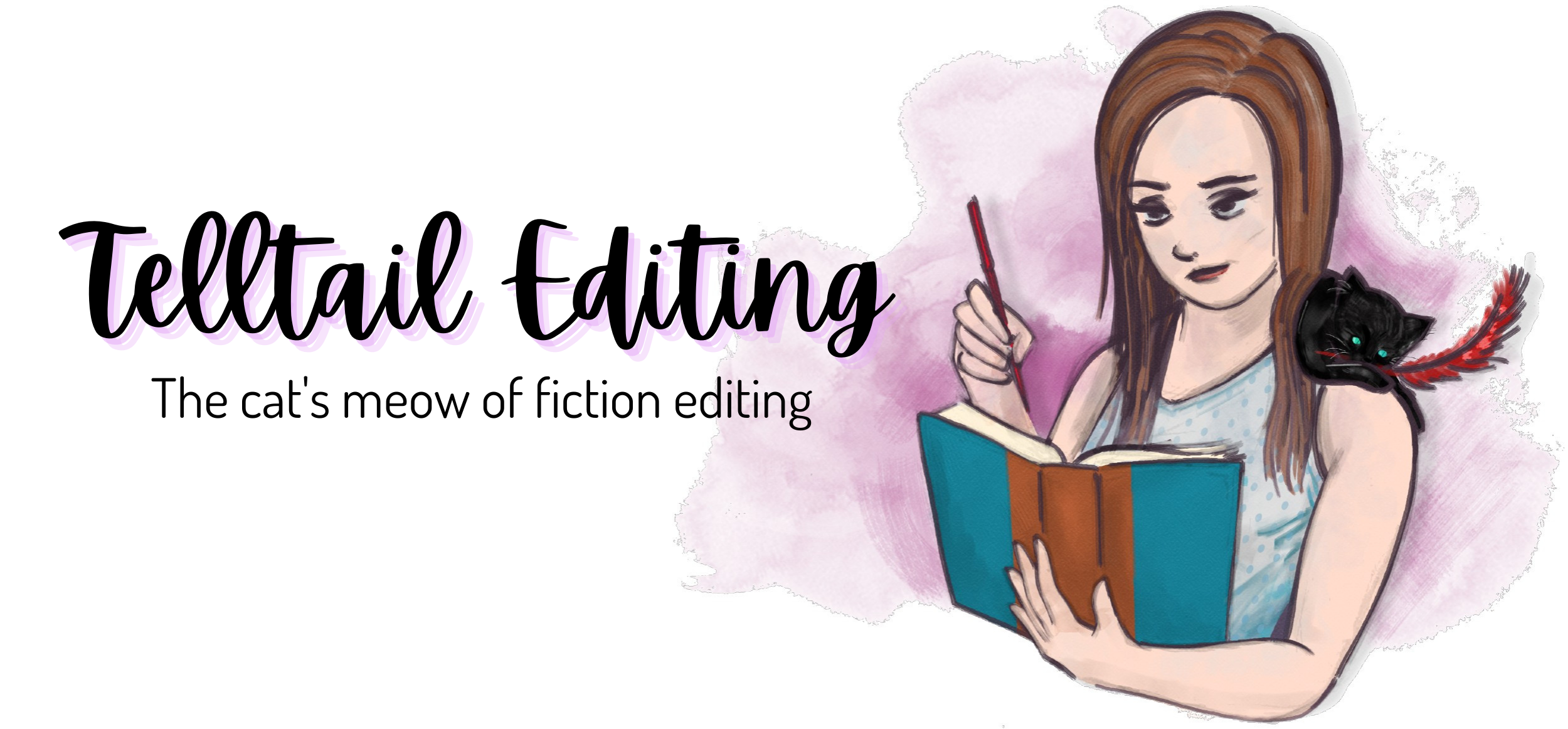Last week’s blog discussed narrative point of view and the differences between them (first person, third person limited, third person omniscient, and second person). This week, let’s talk about verb tenses, the when the story is happening. Is it happening in the present? Or is it happening in the past?
Of course, there’s a debate between which is better, typically with a person firmly on one side or the other. I’m firmly on the past-tense side. Past tense has always felt more natural to me as a reader and a writer. Present tense sticks out to me, as it does for many readers.
Past tense is most prevalent in a wide range of mediums—from genre fiction to newspapers to scientific writing. Present tense is more common in literary fiction, memoirs, autobiographies, and short stories. It has been seen more often in genre fiction in the past couple of years, but the number of works in past tense far outweighs the present tense ones.
If you’re just starting out or if you’re intending to submit to agents and publishing houses, I would advise sticking to past tense. I’m not saying you shouldn’t stick with present tense if that’s what works for you. If it works, own it.
Here are some advantages and disadvantages of present tense.
Advantages of present tense
- Immediacy. The reader is experiencing the events at the same time as the narrator. This allows the reader to connect to the narrator while also giving a sense of consistently moving forward and progressing.
- Simplicity. Present tense verbs are a lot simpler and easier to navigate for a lot of newer authors. The had had of past flashbacks can confuse the best of us. Present tense takes the guesswork out of action.
- Can reflect the theme of the novel. When the theme in a narrative is about moving forward or time passing in general or someone living in the present, present tense can reflect that beautifully. It can even help with characterization.
Disadvantages of present tense
- Lack of invisibility. As mentioned earlier, nearly everything we see is past tense, so we’re familiar with it and expect it. When that changes, it makes us pause, and the tense becomes visible, something we now consciously notice. We all want our writing to stand out, but our characters and writing should shoulder that work, not the tenses.
- Harder to manipulate time. In past tense, you can skip ahead or back in time as it suits the story. This helps avoid telling and parts that aren’t important. In present tense, it’s a little harder to fast forward in scene because it doesn’t feel as natural. The story is happening in real time and has to play out like it’s real time for it to be convincing. Breaks in time can often feel abrupt.
- The bigger picture can get lost. Because we’re focused on the here and now, it’s harder to see the picture as a whole, the whys and hows of what’s going on. There also isn’t a lot of room for reflection.
Past tense, of course, has its own drawbacks, but it allows for more flexibility and is usually easier to work with and manipulate. Ultimately, there’s no right or wrong answer. That’s the beauty of creative writing, especially if you’re an indie author. Just make sure it’s consistent and justified, as all your choices should be.
What tense are you most comfortable in? What are your thoughts on the advantages and disadvantages of present tense? If you liked this post, consider sharing it with your friends!
If you liked this post, consider sharing it with your friends! Consider subscribing so you never miss a post.


Hi, i think that i saw you visited my web site thus i came to ?eturn the favor텶 am attempting to find things to improve my web site!I suppose its ok to use some of your ideas!!
Wow, amazing blog layout! How long have you been blogging for? you made blogging look easy. The overall look of your web site is magnificent, as well as the content!
http://wish-club.ru/forums/index.php?autocom=gallery&req=si&img=5228
https://myteana.ru/forums/index.php?autocom=gallery&req=si&img=6731
http://terios2.ru/forums/index.php?autocom=gallery&req=si&img=4653
https://myteana.ru/forums/index.php?autocom=gallery&req=si&img=6714
http://wish-club.ru/forums/index.php?autocom=gallery&req=si&img=5454
http://wish-club.ru/forums/index.php?autocom=gallery&req=si&img=5305
https://vitz.ru/forums/index.php?autocom=gallery&req=si&img=4881
https://hrv-club.ru/forums/index.php?autocom=gallery&req=si&img=6959
https://vitz.ru/forums/index.php?autocom=gallery&req=si&img=4868
https://honda-fit.ru/forums/index.php?autocom=gallery&req=si&img=7095
http://terios2.ru/forums/index.php?autocom=gallery&req=si&img=4612
https://hrv-club.ru/forums/index.php?autocom=gallery&req=si&img=6949
https://vitz.ru/forums/index.php?autocom=gallery&req=si&img=5103
https://www.nn.ru/user.php?user_id=1472813&page=blog&blog_id=3642203
https://mazda-demio.ru/forums/index.php?autocom=gallery&req=si&img=6340
https://hrv-club.ru/forums/index.php?autocom=gallery&req=si&img=6892
https://honda-fit.ru/forums/index.php?autocom=gallery&req=si&img=7145
https://vitz.ru/forums/index.php?autocom=gallery&req=si&img=4930
http://passo.su/forums/index.php?autocom=gallery&req=si&img=4293
https://myteana.ru/forums/index.php?autocom=gallery&req=si&img=6764
https://honda-fit.ru/forums/index.php?autocom=gallery&req=si&img=7212
http://wish-club.ru/forums/index.php?autocom=gallery&req=si&img=5395
http://terios2.ru/forums/index.php?autocom=gallery&req=si&img=4713
https://mazda-demio.ru/forums/index.php?autocom=gallery&req=si&img=6504
https://myteana.ru/forums/index.php?autocom=gallery&req=si&img=6795
https://myteana.ru/forums/index.php?autocom=gallery&req=si&img=6867
Samira – Ради любви (Lavrushkin Remix) скачать и слушать песню бесплатно https://shorturl.fm/f1mla
Потап и Настя – Если вдруг скачать песню и слушать онлайн https://shorturl.fm/Tx9nl
Реднакси – Ток скачать и слушать песню бесплатно https://shorturl.fm/5ZZXV
Ника – Карие глаза скачать песню и слушать онлайн https://shorturl.fm/LfEHS
Mya mozza & Del’ – Еду домой скачать песню на телефон и слушать бесплатно https://shorturl.fm/Vohim
Мираж – Наступает ночь скачать песню в mp3 и слушать онлайн https://shorturl.fm/VVfSM
Haru – Вкино скачать и слушать песню бесплатно https://shorturl.fm/9DPEP
BULA & SVNV – Тлеет скачать mp3 и слушать онлайн https://shorturl.fm/OiSzt
https://hrv-club.ru/forums/index.php?autocom=gallery&req=si&img=7139
http://passo.su/forums/index.php?autocom=gallery&req=si&img=4261
http://terios2.ru/forums/index.php?autocom=gallery&req=si&img=4773
http://toyota-porte.ru/forums/index.php?autocom=gallery&req=si&img=3271
https://hrv-club.ru/forums/index.php?autocom=gallery&req=si&img=7038
https://hrv-club.ru/forums/index.php?autocom=gallery&req=si&img=7152
http://probox-club.ru/forums/index.php?autocom=gallery&req=si&img=5951
https://hrv-club.ru/forums/index.php?autocom=gallery&req=si&img=7089
https://hrv-club.ru/forums/index.php?autocom=gallery&req=si&img=7051
http://wish-club.ru/forums/index.php?autocom=gallery&req=si&img=5292
http://terios2.ru/forums/index.php?autocom=gallery&req=si&img=4818
https://hrv-club.ru/forums/index.php?autocom=gallery&req=si&img=7172
http://toyota-porte.ru/forums/index.php?autocom=gallery&req=si&img=3244
https://myteana.ru/forums/index.php?autocom=gallery&req=si&img=6687
http://wish-club.ru/forums/index.php?autocom=gallery&req=si&img=5236
https://myteana.ru/forums/index.php?autocom=gallery&req=si&img=6687
https://honda-fit.ru/forums/index.php?autocom=gallery&req=si&img=7218
https://vitz.ru/forums/index.php?autocom=gallery&req=si&img=4974
Russalka – Слёзы В Глазах скачать бесплатно и слушать онлайн https://shorturl.fm/cOxFJ
Туджи – Я Писал Свой Рэп скачать mp3 и слушать бесплатно https://shorturl.fm/1G8B1
Гудрон – Just Do It скачать песню и слушать бесплатно https://shorturl.fm/UN2Ze
ALINIKA – Токсик скачать и слушать mp3 https://shorturl.fm/I2vgE
OWEEK – Врёшь (OST Жизнь По Вызову) скачать песню и слушать бесплатно https://shorturl.fm/xi3Ru
Ёлка – Заново (Radio Edit) скачать песню бесплатно в mp3 и слушать онлайн https://shorturl.fm/pbLg1
Mull3 – Милая, милая скачать mp3 и слушать бесплатно https://shorturl.fm/w7TZn
Татьяна Буланова – Ты Мой Космос скачать и слушать mp3 https://shorturl.fm/Wu5Go
HYDY feat. Esain – Она Как Тигрица скачать песню в mp3 и слушать онлайн https://shorturl.fm/u83qt